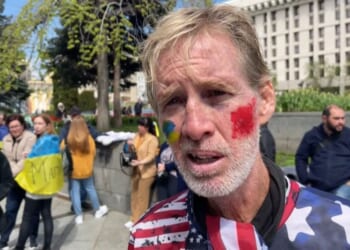Assata Shakur was convicted in 1977 of the first-degree murder of New Jersey state trooper Werner Foerster. After escaping from prison in 1979, she became the first woman to land on the FBI’s most wanted terrorist list.
Shakur was part of a previous wave of radical left-wing violence. She was a member of the Black Liberation Army, a Marxist militant group devoted to “killing cops” and seizing “control of their communities,” according to the Maryland state police.
You’d hardly know it from the media coverage of Shakur’s death on Saturday at the age of 78. She died in Cuba, the Communist nation to which she had fled, from health conditions and advanced age.
Here’s how America’s media outlets marked her death:
Washington Post
Assata Shakur, Black Power militant who fled to Cuba, dies at 78
“Over the decades, Ms. Shakur ascended to a near-mythical status among admirers as well as detractors. Opponents denounced her as a cop killer. Supporters saw her as a leader in the movement for Black empowerment. She described herself as ‘a 20th century escaped slave.'”
“During Black Lives Matter protests, activists have chanted a quote from her autobiography: ‘It is our duty to fight for freedom. It is our duty to win. We must love each other and support each other. We have nothing to lose but our chains.”
New York Times
Assata Shakur Dies at 78; Convicted Revolutionary Found Refuge in Cuba
“Assata Shakur was both lionized and demonized long after she and the Black Liberation Army, the militant group she had embraced, faded from broad public consciousness. To supporters she was a tireless battler against racial oppression. To detractors she was a stone-cold cop killer, the first woman to land on the F.B.I.’s ‘most wanted terrorists’ list, with $2 million in state and federal money offered for her capture.
“For her part, Ms. Shakur regarded herself as ‘a 20th-century escaped slave.'”
“She and two colleagues were in a beat-up Pontiac when New Jersey state troopers stopped them on the New Jersey Turnpike for having a broken taillight. The police account was that she and others left the car with guns blazing. She fired first, they said, touching off a shootout in which a state trooper, Werner Foerster, was killed and another, James Harper, was wounded.”
“Ms. Shakur’s version was that she never held a gun on that 1973 morning and that her arms were in the air when shot.”
“Nonetheless, prosecutors insisted that, when shot, she was in a crouch and firing at Trooper Harper. In the end, an all-white jury of seven women and five men believed them. Though there was no evidence that she had fired at the slain Trooper Foerster, everyone involved in the killing of a police officer was deemed equally responsible under New Jersey law.”
“To many Black people she was a folk hero. Several rap artists name-checked her or even devoted entire songs to her.”
Associated Press (as also published in NPR)
Assata Shakur, a fugitive Black militant sought by the U.S. since 1979, dies in Cuba
“Assata Shakur, a Black liberation activist who was given political asylum in Cuba after her 1979 escape from a U.S. prison where she had been serving a life sentence for killing a police officer, has died, her daughter and the Cuban government said.”
“The FBI put Shakur on its list of ‘most wanted terrorists,’ but, in her telling—and in the minds of her supporters—she was pursued for crimes she didn’t commit or that were justified.”
“Offering Shakur safe harbor was one of the most famous examples of Cuba aligning itself with what it describes as revolutionary forces struggling against the oppressive capitalist empire to the north.”
USA Today
Assata Shakur, Tupac’s godmother who sought political asylum in Cuba, dead at 78
“A New York City native, Shakur first joined the Black Panther Party after graduating college, contributing to the group’s political activism and community-focused initiatives. She later moved to an offshoot of the Black-power group, known as the Black Liberation Army, which opted for more militant tactics.”
“In the years since, she has become a potent political symbol, representing for some a valiant soldier in the war against an oppressive and racist police state. Her 1988 memoir, ‘Assata: An Autobiography,’ has had an enduring influence on the Black power movement.”
People
Tupac Shakur’s Godmother Assata Dies at Age 78, Her Daughter Confirms
“News of Assata’s death was first shared by her daughter Kakuya on Facebook. ‘At approximately 1:15 PM on September 25th, my mother, Assata Shakur, took her last earthly breath. Words cannot describe the depth of loss that I am feeling at this time,’ she wrote.”
“In May 1973, Assata and two other Black Liberation Army members were pulled over on the New Jersey Turnpike by Foerster and another officer. A confrontation ensued, and a shooting followed, leaving Foerster, who was 34 at the time, dead. Assata also sustained a gunshot wound in her left shoulder as well as underneath her right arm.”
“In the years following her conviction, prison break and asylum-seeking in Cuba, Assata became somewhat of a folk hero in certain circles, particularly in the hip hop community. She has since been name-dropped and referenced in lyrics by the likes of Public Enemy, Digable Planets, X-Clan, Paris and Common.”
Rolling Stone
Assata Shakur, Convicted Black Liberationist and Tupac’s Godmother, Dead at 78
“Born and raised in New York City, Shakur became interested in politics, communism, activism, and Black liberation as a college student. After graduating in the late Sixties, she moved out to Oakland and joined the Black Panther Party, later returning to NYC to open a chapter in Harlem, where she oversaw programs like Free Breakfast for Children.”
“Both the Panthers and the Black Liberation Army were extensively targeted by the FBI’s infamous Counter-Intelligence Program (COINTELPRO), which illegally (and sometimes legally) surveilled leftist groups and worked to discredit them.”
“In the United States, she was at once a wanted criminal with a $2 million bounty on her head and a folk hero. Tupac name-checked her at the end of his song, ‘Words of Wisdom,’ while in ‘Rebel Without a Pause,’ Public Enemy’s Chuck D rapped, ‘Hard — my calling card/Recorded and ordered, supporter of Chesimard.’ In 2000, Common released his tribute track, ‘A Song for Assata.’
“But while Shakur remained a cause célèbre, she kept a relatively low profile. She rarely gave interviews and reportedly avoided contact with strangers, worried that something might lead to her extradition back to the United States.”
Harper’s Bazaar
Assata Shakur, Legendary Revolutionary and Black Liberation Army Member, Has Died
“Since her escape, Shakur has lived her life mostly under the radar, only occasionally speaking publicly or publishing works, including her seminal 1987 Assata: An Autobiography. Today, her legacy remains a lodestar for activists determined to continue the struggle for liberation from systems rooted in capitalist, racist, and sexist ideology.
“‘It is our duty to fight for our freedom,’ Shakur wrote in her autobiography. ‘It is our duty to win. We must love each other and support each other. We have nothing to lose but our chains.'”
BBC
Assata Shakur, black liberation activist exiled in Cuba, dies at 78
“Shakur was the first woman to be added to the FBI’s Most Wanted Terrorists list. The agency and New Jersey each offered a $1m (£746,000) reward for information leading to her arrest.
“She was celebrated in music, with her name featuring in songs such as 1998’s Rebel Without a Pause by hip-hop group Public Enemy and A Song for Assata by the rapper Common.
“Shakur is survived by her daughter Kakuya Shakur, who wrote on Facebook: ‘Words cannot describe the depth of loss that I am feeling at this time.'”

















